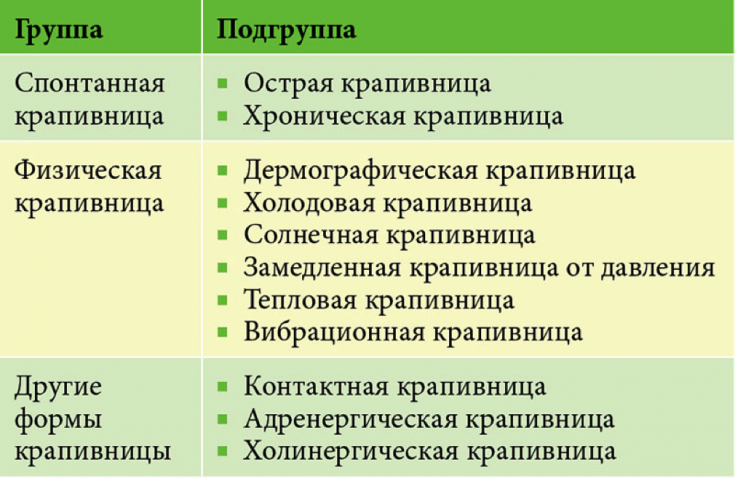Itching is a common symptom that occurs in many skin conditions, such as urticaria, atopic dermatitis, eczema and prurigo. The presence of pruritus can negatively affect the quality of life of patients and their psychosocial well-being. Urticaria is a disease mediated by mast cells that results in a blistering rash accompanied by itching.
Find out in the article on estet-portal.com what pathologies are accompanied by pruritus and what modern approaches to the treatment of this symptom are distinguished at this stage.
- urticaria as one of the main factors in the occurrence of skin itching
- Clinical studies of bilastine for the treatment of pruritus
- duration of the result of treatment of pruritus when taking bilastine
Urticaria, as one of the main factors in the occurrence of pruritus
The development of urticaria is based on the following pathophysiological mechanisms: release of histamine and other mediators activated mast cells, which is accompanied by skin itching.
Subscribe to our page on Facebook!
Chronic urticaria is subdivided into chronic spontaneous and induced. Chronic spontaneous urticaria (COD) is defined as the spontaneous onset of blistering and/or angioedema within ≥6 weeks of exposure to a known or unknown factor.
Current clinical guidelines recommend the use of H1-histamines as first-line treatment for urticaria.
Bilastin is a potent and specific H1 antihistamine effective in the symptomatic treatment of chronic urticaria and pruritus. The use of bilastine at a dose of 20 mg per day for 28 days significantly reduces the symptoms of pruritus and rash in patients, and also improves their quality of life.
Read also: Modern methods of treatment of xanthelasma
Bilastin at the indicated dose also reduces histamine-induced rash and begins to act faster than 10 mg cetirizine, 5 mg desloratidineor 10 mg rupatadine.
Clinical studies of bilastine for the treatment of pruritus
Read also: Therapy for skin lesions in systemic lupus erythematosus
A study conducted in Japan showed that 20mg of bilastine was long lasting and effective, especially when used in patients with pruritic skin conditions. In addition, high efficacy and a good safety profile allows for a fourfold increase in the daily dose of this antihistamine in patients with treatment-resistant urticaria (as recommended by EAACI / GA2LEN / EDF / WAO for the treatment of urticaria).

The main goal of the study was to evaluate the effectiveness of the drug in eliminating itching in patients with skin diseases. In addition to determining the effectiveness of therapy, the impact of bilastine on the quality of life, as well as the safety and tolerability of the drug, were evaluated. Treatment with bilastine for 8 weeks resulted in a statistically significant reduction in the intensity of pruritus in all patients in each group. The reduction in pruritus was highest in the
Significant
reduction in pruritus occurredon the 2nd week and persisted until the end of the study. Similarly, in patients with various dermatological conditions, the combination of treatment of pruritus and rash significantly improved from the 2nd week and continued until the end of the study. Therefore, a decrease in the symptoms of chronic urticaria occurs from the 2nd week of bilastine use.

These results are consistent with another recent study of the use of the drug in patients with spontaneous urticaria
: pruritus and rash decreased already on the 1st day of treatmentand remained low during the study. Bilastine has a good safety profile, and the frequency of side effects while taking it is low. The most frequently identified headache (20 cases in 8 (7%) patients) and nasopharyngitis (8 cases in 8 (7%) patients). Despite the fact that 31 patients received bilastine at a dose of 40 mg per day, no cases of drowsiness were recorded.
Read also: Which topical agents are dangerous for pregnant and lactating womenRead also: Tactical diagnosis and treatment of actinic keratosisBilastin effectively reduces pruritus associated with urticaria and other skin diseases in adults, and has a good safety profile
. The results obtained provide grounds for further study of the use of bilastine in patients with pruritus of any etiology. In addition, an additional analysis showed that increasing the dose of bilastine to 40 mg (i.e. twice) in patients who failed to achieve improvement after 2 weeks of treatment is successful without any side effects, which also needs to be confirmed in future clinical trials. research.More useful information on our
YouTube channel







Add a comment